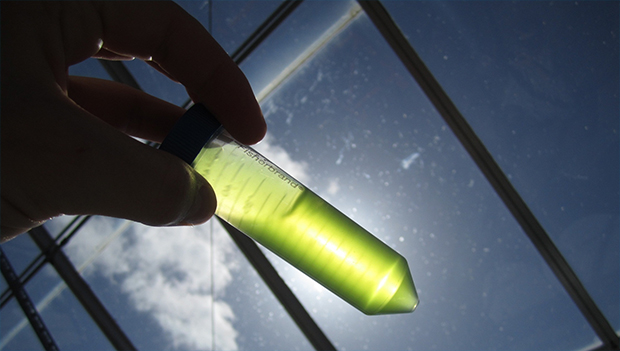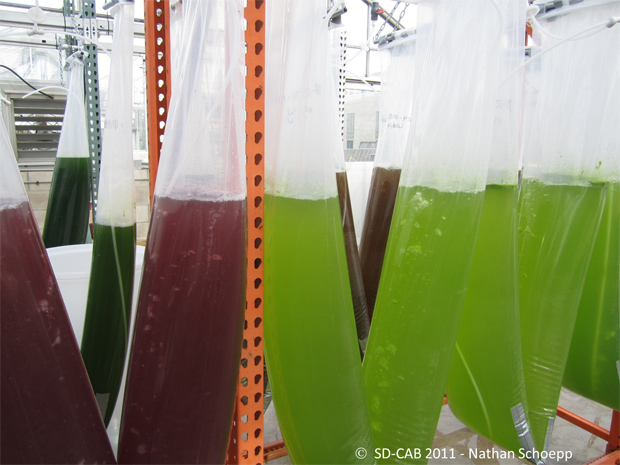Plant Biologists From Across Country to Converge in San Diego to Discuss Future of Food, Fuel
May 8, 2012
By Kim McDonald

Photo by Nathan Schoepp
Some 300 leaders in plant and algae biology from around the country will gather here for a symposium this week to discuss ways of using genetics to develop renewable ways of improving the nation’s food, fuel, pharmaceutical and other bio-based industries. The May 11 to 13 meeting,Food & Fuel for the 21st Century, also will be the inaugural event for a new Organized Research Unit with the same name that will bring together researchers from a variety of disciplines across the UC San Diego campus to develop solutions to local, regional and national problems in these areas.
“The mission of this new ORU is to support development of innovative, sustainable and commercially viable solutions for the renewable production of food, energy, green chemistry and bio-products using photosynthetic organisms,” said Stephen Mayfield, professor of biology and director of the San Diego Center for Algae Biotechnology, which is currently working with a variety of industry and academic partners to develop ways to economically produce biofuels from algae.

Mayfield and Julian Schroeder, a professor of biology, will co-direct the new ORU, called the Center for Food & Fuel for the 21st Century, which will involve researchers in biology, chemistry, engineering, economics and public policy.
“This center will also help facilitate the training of young scientists, including undergraduates, graduate students and post-doctoral scholars, by integrating them into the multi-disciplinary research teams,” said Mayfield. “In addition, the center will facilitate the transfer of technology to the commercial sector, as well as facilitate discussions with regional, state and national policy makers regarding the use of photosynthetic organisms for enhanced food production and energy independence.”

Photo by Nathan Schoepp
“With the world population predicted to grow to 9 billion people by 2050, and a per-capita continuing increase in food and energy consumption globally, the challenge of the present century is to sustainably produce food and energy," said Schroeder. "Presently, the planet receives about 6,000 times more energy from the sun than all present human energy consumption. Plants are very good at turning the sun’s energy into chemical energy, meaning food and bio-energy. Plants will be part of the solution for a sustainable future, but the challenges are undoubtedly great and also pressing.”
